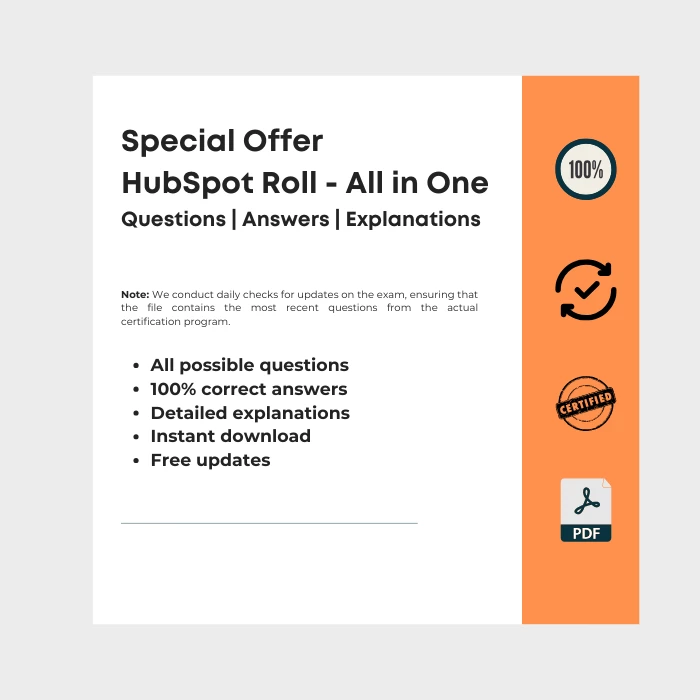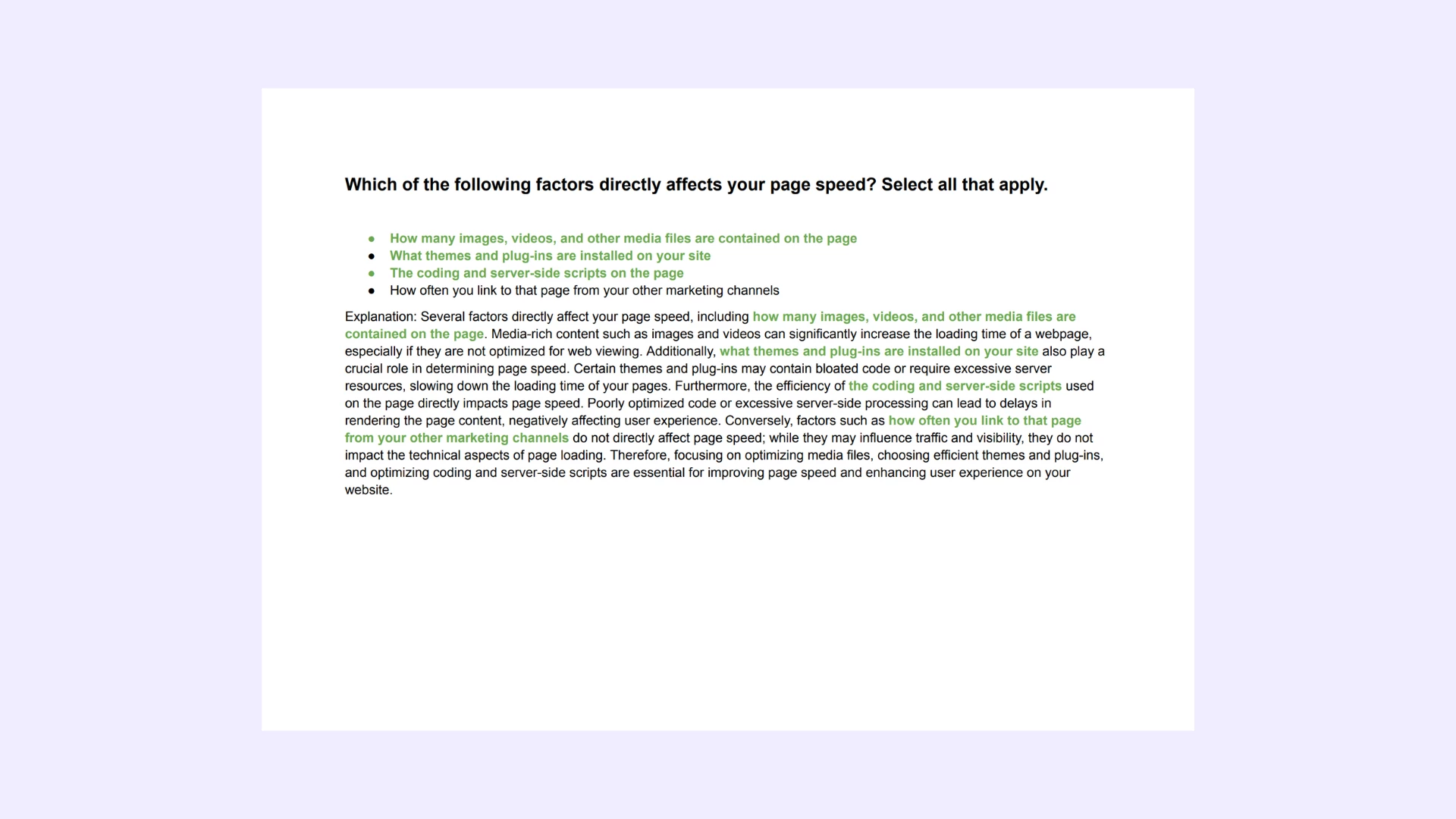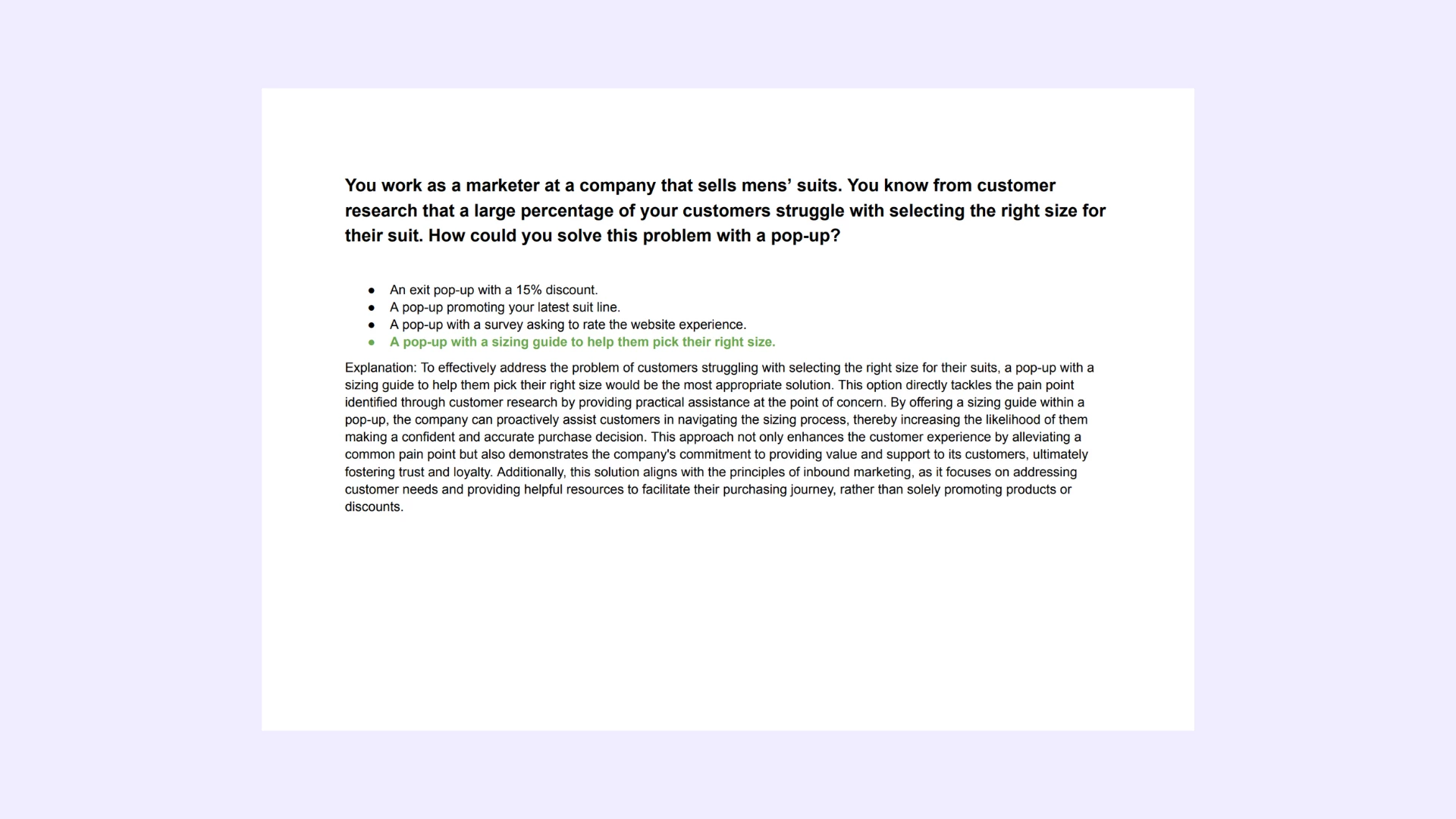What is the difference between a brand keyword and a non-brand keyword?
A brand keyword is more expensive, a non-brand keyword is less expensive
A brand keyword receives less traffic, a non-brand keyword receives more traffic
A brand keyword has more variations, a non-brand keyword has fewer variations
A brand keyword includes a brand’s name, a non-brand keyword does not include a brand’s name

HubSpot Roll. Includes Answers for Every Real HubSpot Certification Exam.
All-in-One: Get all HubSpot exams answers with explanations in one bundle. This package includes answers for every current HubSpot certification. Regular updates to reflect the latest exam version. -> See what's included.


Need a single cerification exam answers? Check out our -> list of certification exams answer keys. Learn Smarter. Obtain or Renew your certificates with peace of mind!
Explanation: What is the difference between a brand keyword and a non-brand keyword?
Explanation: The correct answer is **A brand keyword includes a brand’s name, a non-brand keyword does not include a brand’s name**. Brand keywords are specific terms that include the name of a particular brand, such as the brand name itself or variations of it, while non-brand keywords are more generic terms that do not reference any specific brand. For example, "Nike shoes" is a brand keyword because it includes the brand name "Nike," whereas "running shoes" is a non-brand keyword as it does not mention any particular brand. Brand keywords are typically associated with higher conversion rates and lower competition because they target users who are already familiar with and interested in a particular brand. On the other hand, non-brand keywords are more general and often attract a broader audience, making them valuable for reaching new prospects and driving awareness. Understanding the difference between brand and non-brand keywords is essential for developing an effective search engine marketing strategy, as it enables marketers to target different audience segments and optimize their campaigns based on specific objectives and target audience preferences. Therefore, recognizing that a brand keyword includes a brand’s name while a non-brand keyword does not is crucial for effectively leveraging both types of keywords to drive traffic, conversions, and brand visibility in search engine marketing efforts.

Special Bundle Offer HubSpot Roll. All in One
Note: We conduct daily checks for updates on the exam, ensuring that the file contains the most recent questions from the actual certification program.
Questions | Answers | Explanations. FREE Updates.
You may also be interested:
- Special HubSpot bundle offer - all HubSpot exams in one
- HubSpot CMS for develpers certification exam answers
- HubSpot CMS for develpers II certification exam answers
- HubSpot content hub for marketers certification exam answers
- HubSpot content marketing certification exam answers
- HubSpot contextual marketing certification exam answers
- HubSpot digital advertising certification exam answers
- HubSpot digital marketing certification exam answers
- HubSpot email marketing certification exam answers
- HubSpot frictionless sales certification exam answers
- HubSpot growth driven design certification exam answers
- HubSpot inbound certification exam answers
- HubSpot inbound marketing certification exam answers
- HubSpot inbound marketing optimization certification exam answers
- HubSpot inbound sales certification exam answers
- HubSpot integrating with HubSpot I foundations certification exam answers
- HubSpot marketing hub software certification exam answers
- HubSpot reporting certification exam answers
- HubSpot revenue operations certification exam answers
- HubSpot sales enablement certification exam answers
- HubSpot sales hub software certification exam answers
- HubSpot sales management certification exam answers
- HubSpot sales software certification exam answers
- HubSpot seo certification exam answers
- HubSpot seo II certification exam answers
- HubSpot service hub software certification exam answers
- HubSpot social media marketing certification exam answers
- HubSpot social media marketing II certification exam answers